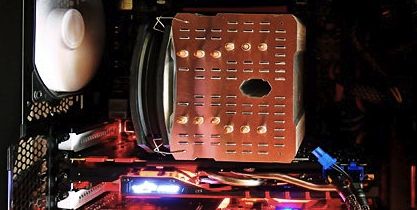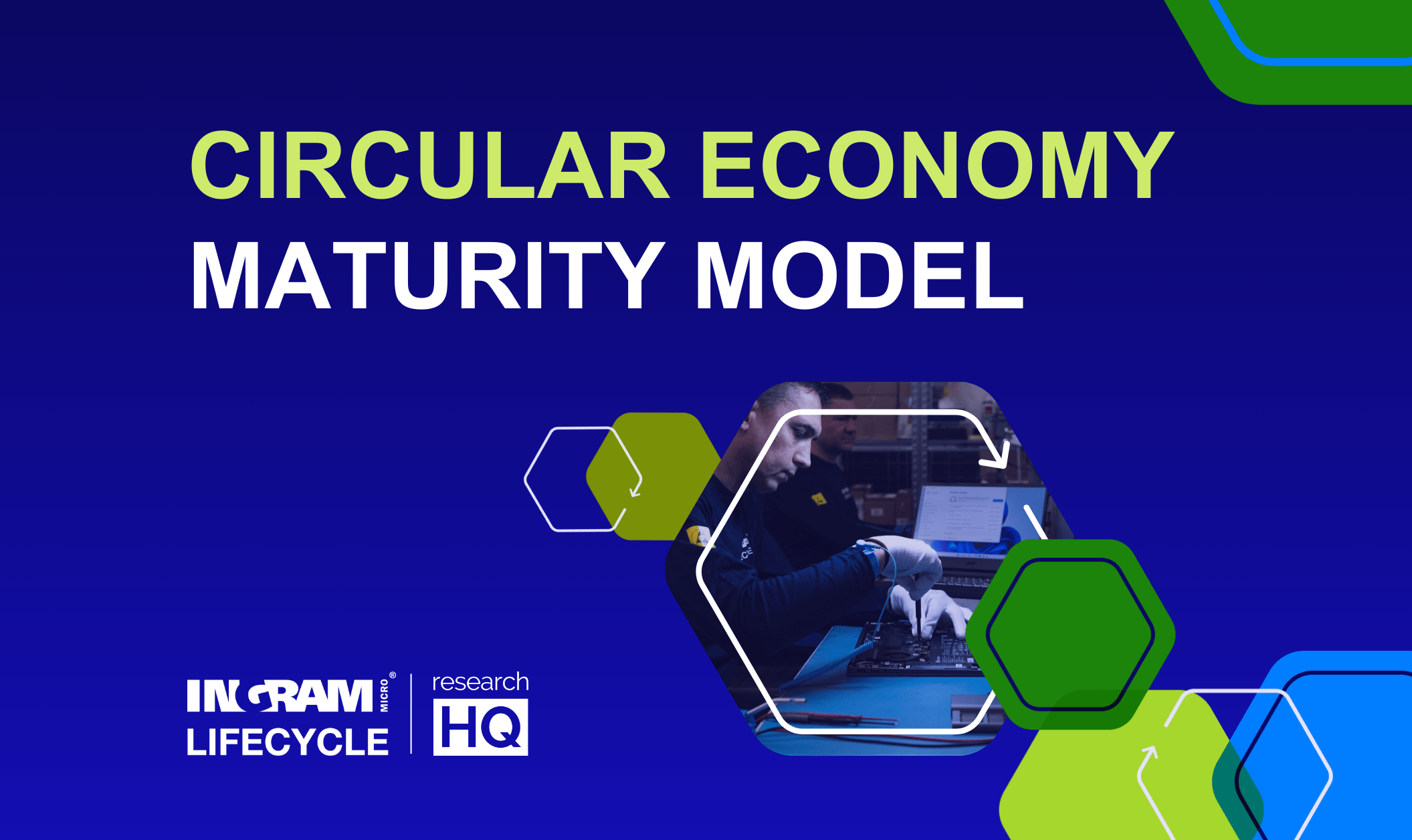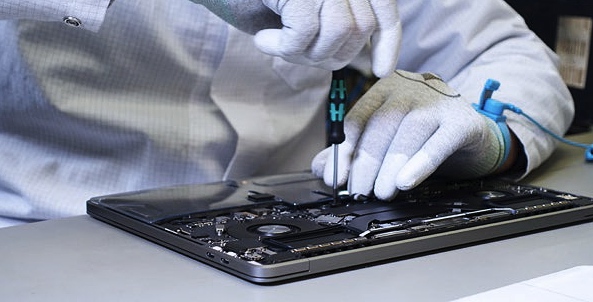Risks and challenges posed by internal ITAD and how switching to an external partner can mitigate these
The IT landscape is complex and in constant flux. Staying on top of regulations is paramount for businesses in avoiding risk exposure and financial damage. IT Asset Disposition, or ITAD, is the process of managing the decommissioning of end-of-use IT assets in a manner that ensures data security and environmental compliance while maximizing residual value. Consider securing an efficient, compliant ITAD partner who can mitigate against risks while supporting your enterprise across the three main pillars of ITAD: data security, sustainability, and value recovery.
Supporting Robust Data Security
 It is important that any data is securely erased and destroyed from your end-of-use devices to comply with data protection regulations. Keeping data secure is not only applicable while it is in use within your company, but also when the data-bearing device reaches the end of its useful life. An ITAD partner mitigates your risks and provides liability coverage protecting against the financial impact of potential asset loss or data breach.
It is important that any data is securely erased and destroyed from your end-of-use devices to comply with data protection regulations. Keeping data secure is not only applicable while it is in use within your company, but also when the data-bearing device reaches the end of its useful life. An ITAD partner mitigates your risks and provides liability coverage protecting against the financial impact of potential asset loss or data breach.
1. On-site vs off-site, and the chain of custody
Some companies may wish to find an ITAD partner to sanitize data onsite as opposed to or prior to shipping those devices to an ITAD processing facility. An enterprise class ITAD partner will ensure all vendors handling your devices throughout the supply chain will adhere to a strict chain of custody processes, minimizing any risk to your devices while they are in transit.
2. Theft of physical devices or remote data breaches
Theft is a risk wherever your device sits, whether within your facility, in transport, or with your ITAD partner. Physical security arrangements must reflect the importance and sensitivity of data housed on the devices. Data breaches can lead to severe fines, loss of any proprietary information that may have been involved, and damage to company reputation, which in turn can have ongoing financial implications. For breaching the General Data Protection Regulation (GDPR), the Information Commissioner’s Office (ICO) has previously fined British Airways £183.39m and hotel chain Marriott £18.4m for failing to demonstrate having the appropriate measures in place to protect personal data on their devices after the companies were hacked. Your ITAD partner will minimize the risk of theft by deploying measures such as background checks on employees and the installation of comprehensive security systems (for example, video monitoring, intrusion detection, and controlled access). Moreover, an asset tracking system allows the ITAD partner and clients to track each individual asset at any point in the disposition process.
 3. Understanding your data responsibility
3. Understanding your data responsibility
Committing time, training, and resources to continually understanding regulation changes may be onerous. It is not likely to be a top priority within overall business functions, but it is vitally important for the reasons outlined above. By contracting an expert and specialized ITAD partner, you outsource the process of ensuring your policies and practices are continually aligned to the latest legislation, thus in turn reducing the in-house cost of supporting this function.
4. Managing a data security budget
Research suggests that security policies and budgets exist mainly for devices while in use. Consider the fact that unwiped, end-of-life devices could house accessible data, exposing businesses to risks from loss and theft of assets which are vulnerable to physical hacking and accessing of passwords, PII (personal identity information), and other company confidential
information. An ITAD partner provides solutions to bridge this gap, removing the data on end-of-life devices, and these additional costs need to be factored into a data security budget that is secured at all stages of the device’s life.







 Enterprises are becoming accountable for the CO2 emissions and e-waste that their operational footprint generates. As with data protection, environmental protection is also regulated with financial implications for non-compliance. The size and scale of greenhouse gas (GHG) emissions and landfill contributions can negatively impact your company’s reputation. There are two main ways an organization can reduce their negative impact on the environment when their devices reach the end of their useful life; find a secondary use for the device, or make sure they are disposed of in an environmentally responsible manner. An ITAD partner should track the final disposition of all of your devices and be able to provide data showing the carbon savings you have accumulated by choosing to reuse, resell or redeploy product rather than buying new technology.
Enterprises are becoming accountable for the CO2 emissions and e-waste that their operational footprint generates. As with data protection, environmental protection is also regulated with financial implications for non-compliance. The size and scale of greenhouse gas (GHG) emissions and landfill contributions can negatively impact your company’s reputation. There are two main ways an organization can reduce their negative impact on the environment when their devices reach the end of their useful life; find a secondary use for the device, or make sure they are disposed of in an environmentally responsible manner. An ITAD partner should track the final disposition of all of your devices and be able to provide data showing the carbon savings you have accumulated by choosing to reuse, resell or redeploy product rather than buying new technology. There is potential to recover value from devices that would otherwise end up in landfill or remain collecting dust in an office cupboard. There are options to enable the recovery of some value which could in turn be invested back into asset management and security of the remaining equipment.
There is potential to recover value from devices that would otherwise end up in landfill or remain collecting dust in an office cupboard. There are options to enable the recovery of some value which could in turn be invested back into asset management and security of the remaining equipment. Historically, most organizations were not equipped to manage remote workforces on a large scale, but the COVID-19 pandemic changed the approach to work. Many organizations have adapted to maximize workforce efficiency and productivity, regardless of where they work. In response to this shift, ITAD partners have evolved, broadening their offer to include storage, custom pre-configuration, end-user device deployment, and recovery, alongside bulk device management to enable IT departments to efficiently support all workplaces.
Historically, most organizations were not equipped to manage remote workforces on a large scale, but the COVID-19 pandemic changed the approach to work. Many organizations have adapted to maximize workforce efficiency and productivity, regardless of where they work. In response to this shift, ITAD partners have evolved, broadening their offer to include storage, custom pre-configuration, end-user device deployment, and recovery, alongside bulk device management to enable IT departments to efficiently support all workplaces. 1. Robust processes
1. Robust processes Rather than search for a company that promises unlimited or financially unsustainable liability coverage, instead choose an ITAD partner who has strong financial resources to back up any commitments, carries industry-appropriate levels of insurance, has an excellent security history, and offers strong chain-of-custody and process controls. A provider with those attributes, plus advanced onsite service capabilities, will be able to collaborate with you to build end-to-end security measures into your ITAD program before the first asset is collected.
Rather than search for a company that promises unlimited or financially unsustainable liability coverage, instead choose an ITAD partner who has strong financial resources to back up any commitments, carries industry-appropriate levels of insurance, has an excellent security history, and offers strong chain-of-custody and process controls. A provider with those attributes, plus advanced onsite service capabilities, will be able to collaborate with you to build end-to-end security measures into your ITAD program before the first asset is collected.
